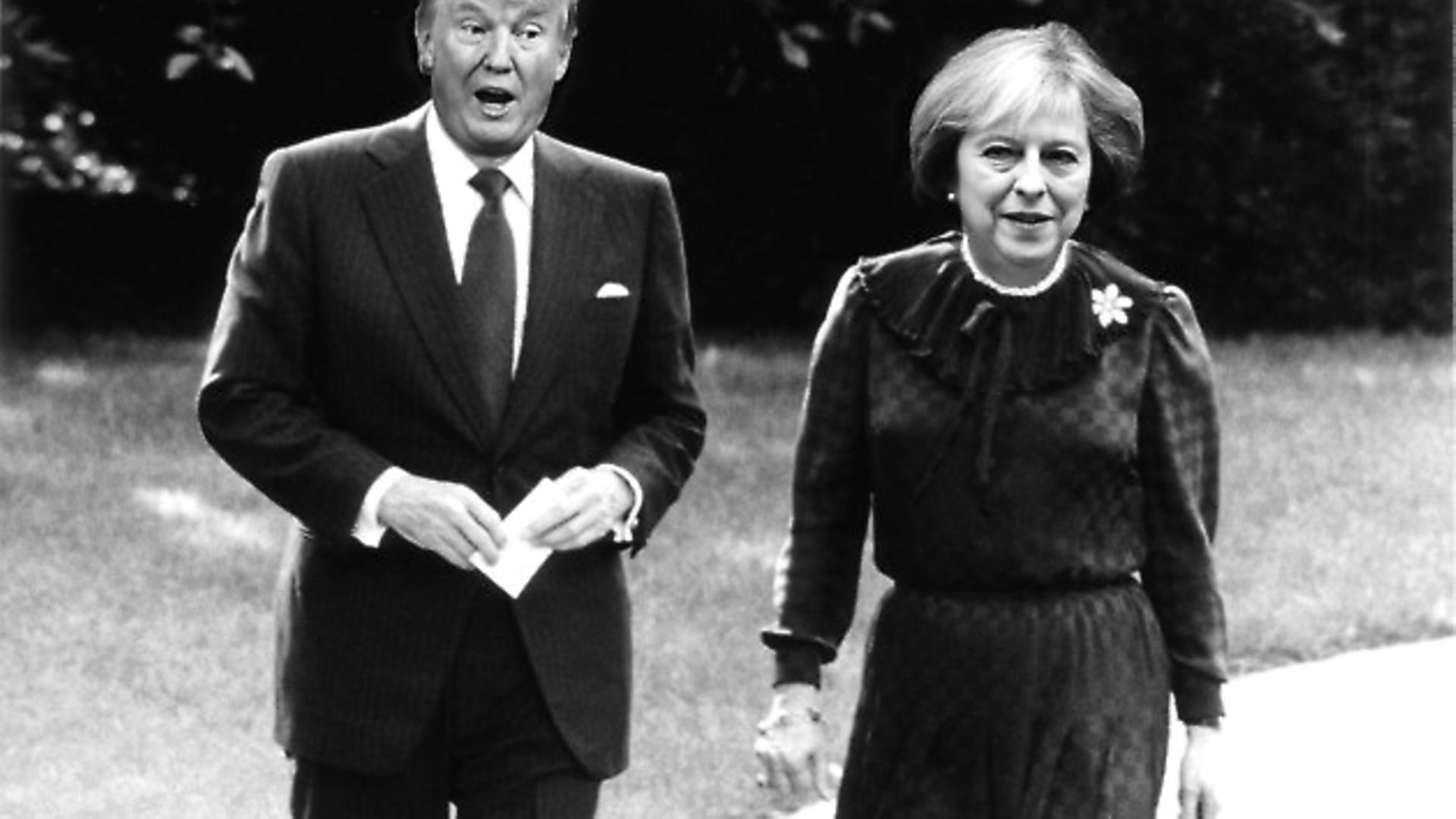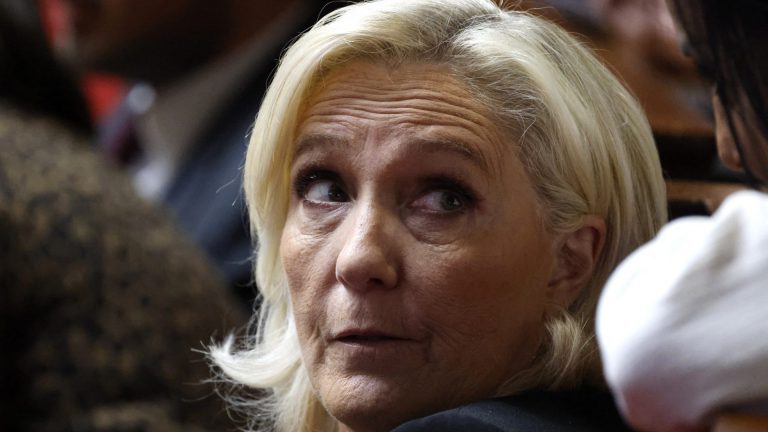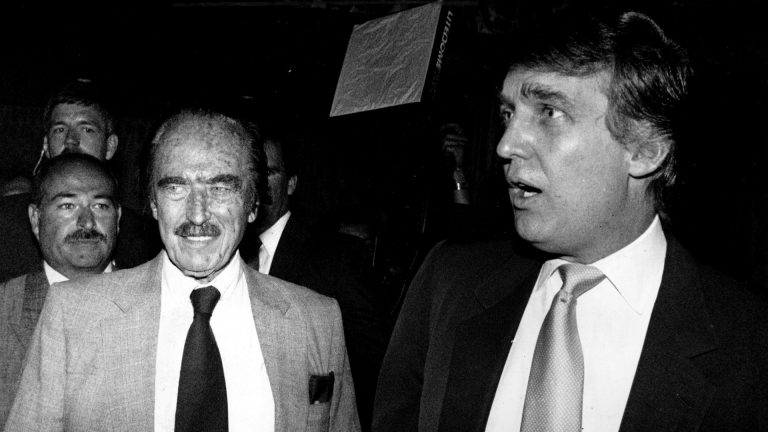
The ‘special relationship’ between the US and the UK has long been unbalanced. Brexit will tip the scales completely in favour of the Americans and enfeeble Britain
The British Ambassador to the US, Kim Darroch, says that he plans to make Prime Minister Theresa May and incoming President Donald Trump’s partnership as close as the one between Margaret Thatcher and Ronald Reagan. The problem with implementing this good intention is that in Thatcher’s time, Britain possessed something that the US wanted: influence over Europe on foreign policy and defence issues, particularly on countering the threat from Moscow. But Brexit surrenders Britain’s leverage over Europe and leaves us with little to offer the US.
Instead, the British government’s desperation for a new trade deal with the Americans may compel it to support an unpleasant and dangerous Trump regime almost unconditionally.
The first signs of May grovelling to Trump have appeared even before he takes office. May’s clumsy criticisms of outgoing Secretary of State, John Kerry’s statesmanlike speech on the Israeli-Palestinian dispute in late December were as uncalled for as they were embarrassing. Kerry has worked tirelessly and with some success on seemingly intractable issues that are equally in Britain’s interests, like the Iranian nuclear programme. He deserves more respect from a supposed close ally. Despite this May felt it more important to make comments that were an obvious attempt to butter up Trump’s team rather than contribute usefully to the Middle East Peace Process.
Subsequently, Boris Johnson was sent across the Atlantic to apologise to some of Trump’s advisors, including Steve Bannon, for an uncharacteristically reasonable comment he once made about one of the President-elect’s outbursts.
One oft-repeated Leave campaign fantasy was that exiting the EU would allow Britain to connect more closely with an imaginary ‘anglosphere’ of English-speaking nations. Among its many flaws, this notion ignores the fact that most modern nations use English extensively for international business purposes. And being ‘English-speaking’ is hardly the primary criteria most potential partners in the world use when deciding with who to trade.
As President Obama pointed out during the referendum campaign, the UK already had a pretty good trade deal with the world’s largest anglophone nation, the USA, via the EU. It was unlikely to get a better one on its own and would in any case have to wait a long time for the Americans to get around to negotiating with it, given their long list of other priorities. The situation has now worsened considerably with the election of Trump. This turn of events illustrates once again that Brexit is not only a bad idea, it is incredibly badly timed.
Trump’s overt scepticism about trade deals was a centrepiece of his campaign. Regardless of any vague assertions to the contrary that Foreign Secretary Johnson claims to have obtained in return for prostrating himself, the new president is very unlikely to pursue a rapid and favourable new arrangement with the UK.
This issue is critical for Britain because it does more than 40% of its trade with the EU. Having put this business at risk, it cannot afford to lose any of the 12% it does with its next biggest trading partner, the US, as well. As the economic damage wrought by Brexit becomes apparent, the government is likely to see obtaining a new trade deal with the Americans as an existential imperative that is worth any sacrifice.
This will put the UK in an extremely uncomfortable position because, let’s face it, the Trump presidency is not going to go well. The combination of Trump’s personal flaws and the need to distract domestic attention from his unfulfilled campaign commitments will lead him to do dangerous things overseas. To put it mildly, it will not be in Britain’s interests to get involved in these escapades.
Trump appears fixated on cooperating with Putin’s Russia and giving the Kremlin what it wants. What lies behind this fixation is the subject of much speculation in the US. But whatever his reasons are for favouring the former-KGB dominated regime in Moscow over America’s own security interests, this is bad news for Britain and Europe.
Russia is the greatest security threat to our continent. Britain was one of the strongest proponents of the sanctions that are at least partly keeping Putin in check. Having surrendered its influence in Europe, Britain will no longer be able to preserve this position. Its need for favourable treatment from Trump will force it to acquiesce if he presses for the sanctions to be lifted and acceptance of Russia’s occupation of parts of Ukraine. Such steps would further embolden Putin in his campaign to undermine European democracy and destabilise his neighbours by military and other means.
Trump’s inevitable inability to fulfil the false promises he made during the campaign will be a crushing disappointment to his hard-core supporters at home. The consequent criticism and unpopularity will dig deeply into Trump’s thin skin, generating a huge temptation to ‘make America great again’ by launching a small, victorious war instead. Even capable British governments in normal times find it hard to resist the pressure to join America’s wars. A desperate one will find it even more irresistible. While the US does not have much to gain practically from the involvement of a British military decimated by austerity, the ‘special relationship’ between the two countries’ armed forces does still exist and international cover for overseas exploits is always welcome.
As a man addicted to grandeur, it is all too plausible that Trump will be inspired to start a conflict that is more substantial than small. A confrontation with China seems consistently high on his agenda. And the Chinese will not be slow to provide excuses for one. They may well do so in the early weeks of Trump’s presidency. It has become almost traditional for China to test the resolve of new American presidents to defend their military presence, trading routes and allies in East Asia.
Early in George W Bush’s term, the Chinese intercepted and crashed into a US military plane, causing it to make an emergency landing in China. President Obama was greeted with the harassment of a US Navy vessel. Both administrations subtly found ways to avoid escalating the crises while simultaneously showing strength by not backing down. It remains to be seen whether Trump and his politically inexperienced, occasionally unstable-seeming advisors can muster up the same blend of fortitude and discretion.
Any US conflict or stand-off with China would put Britain in a tight spot between its two largest non-European trading partners, both of who it is courting harder than ever to offset the forthcoming economic impact of Brexit. We could hardly ditch the remnants of the special relationship with our strongest democratic ally, main military protector via NATO and second biggest trading partner. But going against the growing might of China would leave the government’s plans to seek massive Chinese inward investment in tatters.
Blind leaps of faith rarely pay-off in the international political and economic arena. Ones that reduce your options and leverage with key partners are almost guaranteed to fail. Brexit will increase Britain’s dependence on the fading ‘special relationship’ with the US just as it has elected a unilateralist, protectionist president and leave us considerably more vulnerable to other significant powers such as Russia and China.
• Paul Knott is a former British diplomat and the author of The Accidental Diplomat; he lives in Switzerland









